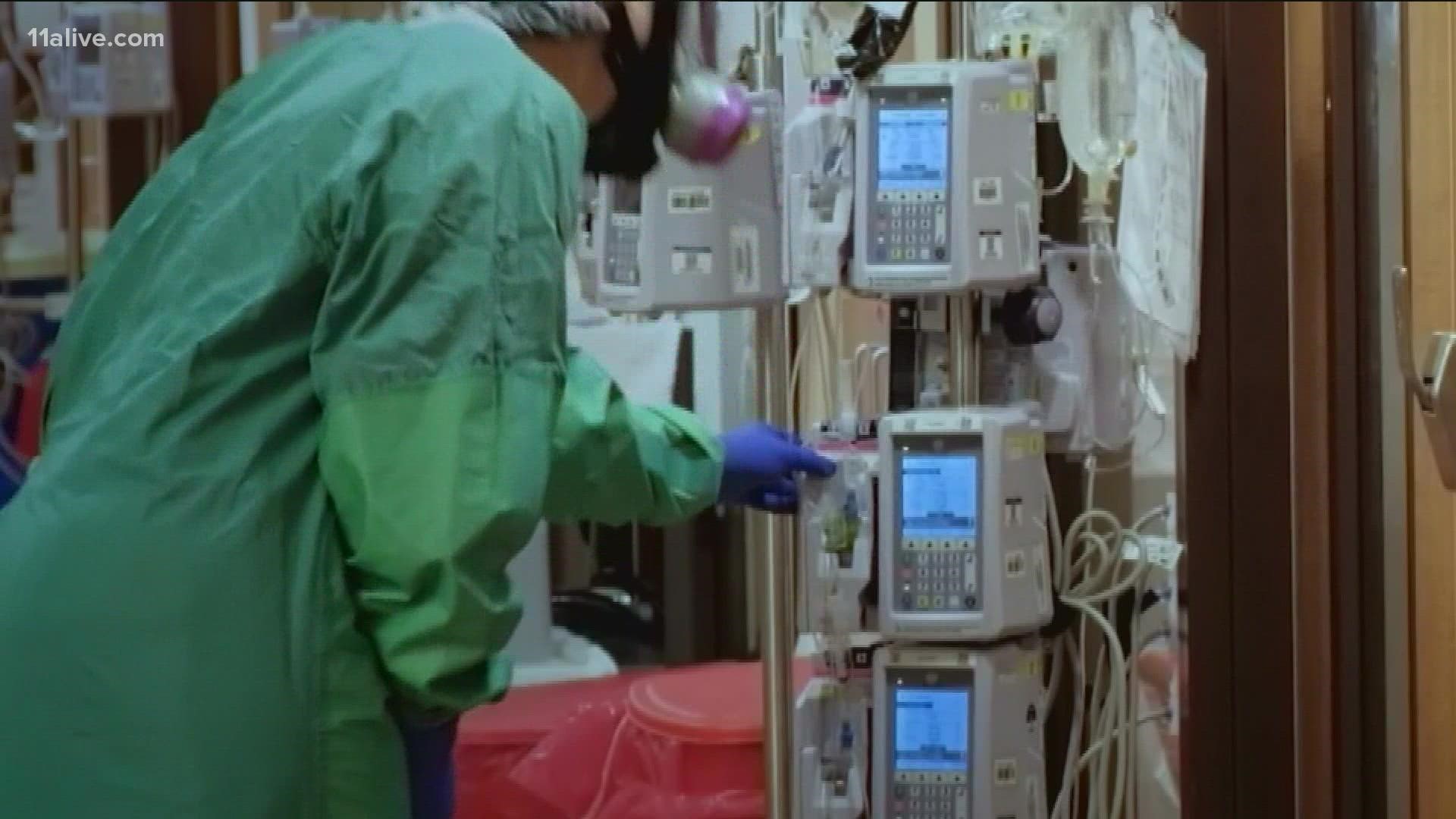ATLANTA — Thousands of nurses across the state are facing pressure during the latest COVID-19 surge. The omicron variant has been blamed for exacerbating an ongoing staffing shortage and nurses are calling out sick, leaving others to work additional hours and pick up the slack.
Joyce Leggett said she has felt burnout several times in over 20 years of nursing. She described it as mentally tiring and stressful. The licensed practical nurse said it's been difficult to relieve pressure off people in the field because so many people are out. According to Patricia Horton, CEO of the Georgia Center for Nursing Excellence, the state had 43,000 nursing positions go unfilled for much of 2021.
A Medscape survey showed a 40-percent decrease in career satisfaction from the pandemic. Close to two-thirds of participants said they were experiencing burnout of some kind.
“When COVID hit, it hit so fast, I don’t think the medical field was ready for it," Leggett said. "People were getting sick, including nurses and doctors. That was just making everybody else short. Nurses are having to work double shifts day after day after day. It just wears you out.”
Matthew Mawby, co-founder of Staffhealth.com, said the agency has supplied close to one-thousand nurses and medical professionals across 100 medical facilities in Georgia.
RELATED: Despite pandemic, Emory University reports 'unprecedented' increase in nursing school applications
"These facilities are in panic mode,” Mawby said. "They’re struggling to keep their own staff, in addition to agency staff as well due to COVID and the omicron variant going around.”
Mawby said same-day pay, flexible schedules and recruiting more nurses could cut down on some of the burnout.
"A lot of facilities are offering some different types of counseling services, help hotlines that have to do with the mental capacity of individuals," Mawby said. “Make the schedules easier for them to where it’s not burning them out. Some facilities are having nurses work 100 hours a week, and that’s too much. With more nurses on board, we can minimize the burnout."
Leggett said she found an outlet sympathizing with coworkers and keeping her family top of mind.
"We all help each other. We’re like a big family," Leggett said. "We’re doing our best. We are trying our best to help get people well, do our jobs.”
Horton said work was underway on developing a nursing workforce dashboard to help those currently in the field. More resources for nurses can be found here.

